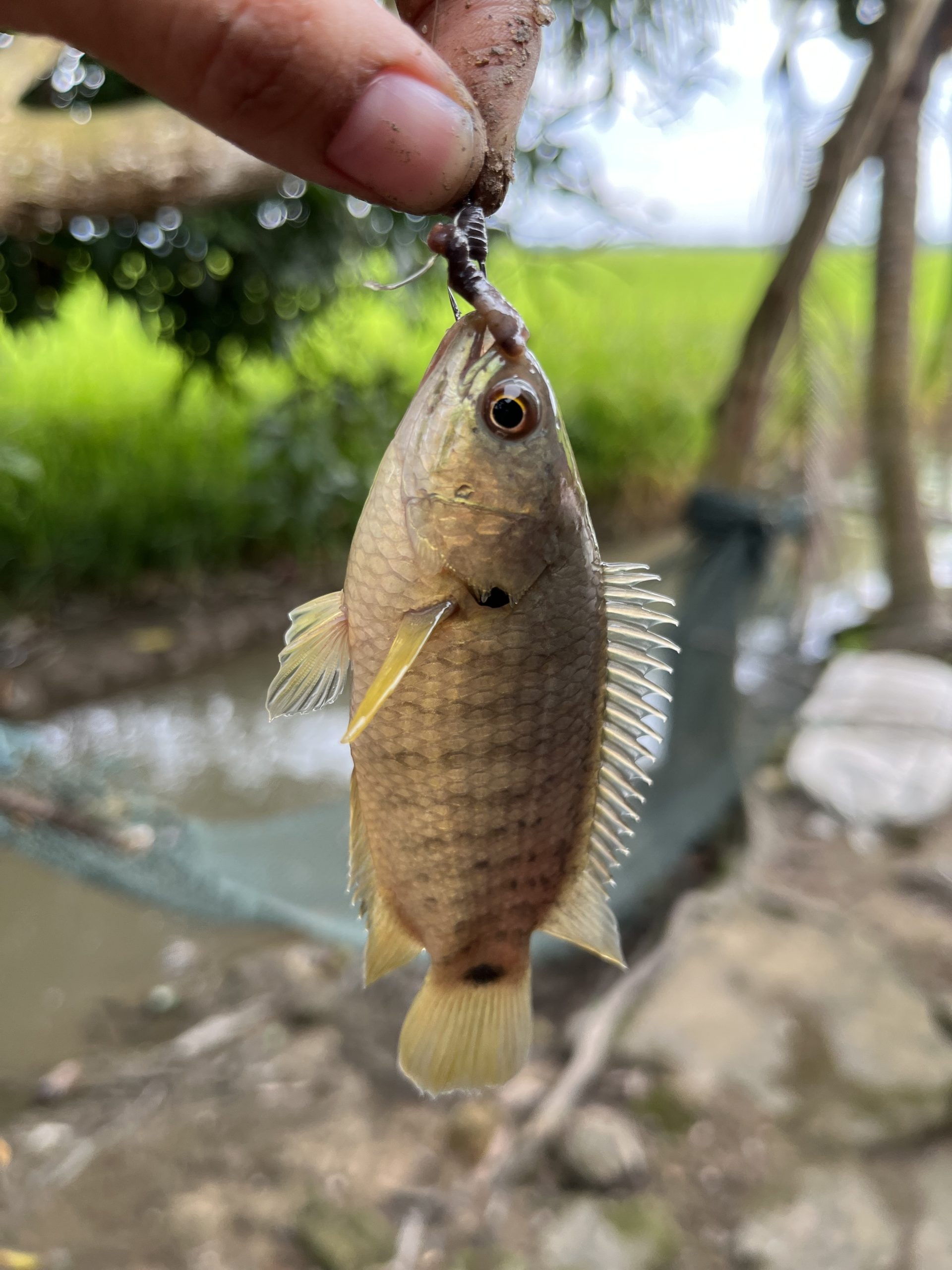In a world filled with remarkable scientific discoveries, sometimes the most unexpected heroes come from nature, offering us breakthrough solutions for our environment and health. A recent groundbreaking study found that a type of freshwater fish, the Anabas testudineus (A. testudineus), better known as the climbing perch, or Ikan Puyu in Bahasa Malaysia, may bring hope to millions of cancer patients worldwide due to its remarkable fish skin mucus.
Dr. Douglas Law, a senior lecturer from INTI International University’s Faculty of Health and Life Sciences, collaborated with his counterparts Associate. Prof. Dr. Mohd Shazrul Fazry Sa’ariwijaya and Dr. Ahmed Abdul Kareem Najm from the Faculty of Science and Technology at Universiti Kebangsaan Malaysia (UKM), on the study which found that the skin mucus of the A. testudineus contains promising anticancer proteins which could possibly prevent the growth of breast cancer cells.
Their study titled “Anti‑Breast Cancer Synthetic Peptides Derived From The Anabas testudineus Skin Mucus Fractions” elaborates on the uniqueness of sturdy freshwater fish which can live in polluted environments due to its epidermal mucus (EM), protecting it from pathogens or germs, while also observing its remarkable resilience in difficult environments.
“This breakthrough shows us the emphasizes the immediate necessity to safeguard and preserve our valuable freshwater animals, ensuring their critical contribution to our fragile ecosystem,” he said.

In his research, Dr. Douglas Law from INTI International University’s Faculty of Health and Life Sciences (FHLS) discovered that skin mucus from the climbing perch fish contains promising anti-cancer proteins that could possibly impede the growth of breast cancer cells.
According to his research, A. testudineus is a hardy fish found in freshwater habitats across Asia. It is also known for its ability to survive in low oxygen environments as well as its ability to survive out of the water for extended periods of time.
“The mucus on the fish’s skin contains antimicrobial peptides (AMPs) that could function as a protective shield, safeguarding the fish against potential harmful microorganisms and maintain its health.
“AMPs have attracted the attention of numerous researchers due to their ability to combat both detrimental microorganisms and abnormal cell growth, including tumours,” Dr. Douglas said, adding that it acts as a natural defence system that helps protect from infections and could possibly help control abnormal cell growth.
When asked how the fish mucus was extracted and produced, he said a total of 30 climbing perch fish obtained from a local fish farm in Jelebu, Negeri Sembilan, Malaysia were used.
“Before conducting the experiments, the fish were given time to adjust to their new environment. They were kept in an aquarium with a temperature maintained at around 28 degrees Celsius in an aerated tank, providing them with ad libitum feed,” he explained.

Anabas testudineus, popularly known as climbing perch fish, demonstrated exceptional characteristics of being able to thrive in a polluted environment. Its epidermal mucus (EM) protects it from pathogens and germs.
The study, published in the journals Nature Scientific Reports and Sains Malaysiana, indicated that the fish were observed in difficult environments. From the observation, it was found that the mucus contained several bioactive peptides with potential anti-cancer properties.
“The mucus highly likely acts as a protective barrier for the fish, helping to defend it against potential pathogens and maintain the health of its skin. The antimicrobial peptides within the fish mucus have properties that allow them to fight against harmful microorganisms, preventing infections and promoting the fish’s overall well-being,” he added.
He pointed out that in the case of the A. testudineus skin mucus fractions, his team had isolated specific peptides from the mucus and synthesized them in a laboratory.
The use of peptides derived from natural sources, such as the skin mucus of A. testudineus, can offer potential advantages in terms of therapeutic applications. These peptides may provide a basis for the development of novel drugs or therapies that could be used to prevent, treat, and manage breast cancer. While noting the significance of the skin mucus, he pointed out that more in-depth research is necessary to fully validate the effectiveness before they it can be introduced and utilised in medical practice.
“These findings offer cancer patients hope and highlights how nature can provide solutions to global health challenges. But we need to take measures to protect water sources from pollution, implement regulations for fishing practices to prevent excessive exploitation, and promoting conservation initiatives,” he said.
Dr. Douglas added that the government needs to also work towards improving healthcare accessibility to ensure that cancer prevention measures and screenings are readily available to all citizens.
“By fostering partnerships and providing platforms for knowledge exchange, the government can encourage innovation, streamline research efforts, raise community awareness, and promote the translation of scientific discoveries into tangible healthcare solutions,” he concluded.